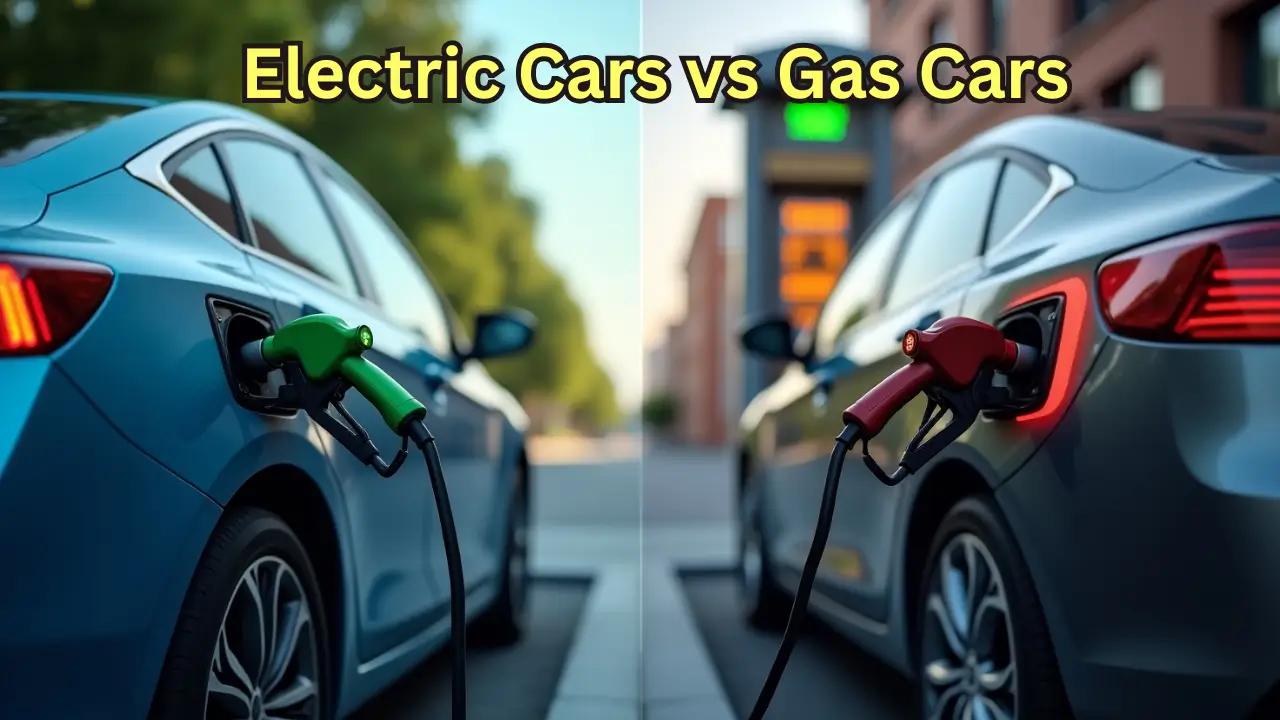Electric cars vs gas cars: which is cheaper long term? Compare costs of fuel, maintenance, insurance, and overall ownership savings.
Introduction
As the auto industry races toward a more environmentally friendly future car buyers have their work cut out for them when it comes to weighing the long term financial implications of electric powered cars versus traditional gas guzzlers. Though electric vehicles are frequently presented as a greener option for many drivers the larger consideration may be whether they are a better deal over time.
Purchase Price: The Initial Investment
Electric vehicles historically have cost more up front than their gas powered equivalents. But that gap is closing fast. As more OEMs jump into the EV space and battery prices continue to come down vehicles such as the Tesla Model 3 Chevrolet Bolt and Hyundai Ioniq 5 are now priced at a level that allows them to compete with many mid range gas powered vehicles.
In addition federal and state tax credits can reduce the effective purchase price of EVs. For instance in the United State the federal government provides up to 7,500 in tax credits for an eligible EV with many states adding rebates exemptions or perks like the ability to use carpool lanes.
Electrical vs Gas Fuel Costs
Fuel is one of the greatest cost advantages for EVs. It is about half as expensive to drive an electric vehicle as a gasoline car according to the U.S. Department of Energy. EV owners typically pay about 0.04 to 0.05 per mile for electricity. While drivers of gas vehicles generally pay 0.10 to 0.15 per mile depending on fuel prices and vehicle efficiency.
If you drive 15,000 miles a year this may translate to between 750 and 1,500 dollars in savings per year on fuel if you use an EV. They could save over 10,000 in a decade and possibly much more especially as prices of gas are unpredictable. Electricity can come from less expensive renewable sources such as solar power.
Maintenance and Repairs
Their drivetrains are less complex than those of fossil fuel powered cars and have fewer moving parts too. No oil changes timing belts or fuel filters and brake wear is cut due to regenerative braking. With electric cars said that owners will save on average of 4,600 in maintenance and repairs compared to gasoline powered vehicles.
Gas cars need basic maintenance the oil gets changed every 3,000 to 7,000 miles the air filter must be replaced the engine will require regular service and it all costs money over time. Though EV batteries degrade over time most manufacturers guarantee them for 8–10 years or up to 100,000 miles.
- Audi GT50 Concept: A Loud Reminder of Why Car Enthusiasts Fell in Love With Audi
- Nearly 30% of UK Drivers Believe Car Tax Should Be Based on Mileage — Survey
- Why Planes and Boats Escaped the Luxury Tax But Cars Didn’t
- Australia’s Headlight Confusion: Authorities Warn Drivers After Viral $250 Headlight Rule Goes Wild Online
- 2025 Hyundai Venue Facelift Launched in India – Full Details, Variants, and Price
Insurance and Registration
EV car insurance can be a little more expensive with their higher value and specialized parts to blame. But that gap has been closing as insurers collect more data on EV safety and repair costs. Some states even provide discounted registration fees or waive EVs from specific road taxes to help compensate for pricier insurance.
Depreciation and Resale Value
Depreciation has long been a weak spot for electric vehicles. Early electric cars depreciated rapidly because of battery concerns obsolescence and limited driving radius. But new EVs by Tesla, Hyundai and Ford are doing a better job holding value with more range, capabilities and used demand.
By contrast gas vehicles are experiencing greater depreciation pressure as more buyers make the switch to electric. In some markets resale values for certain gas cars have dropped faster than expected due to tightening emissions regulations and shifts in consumer preference.
Tax Incentives and Environmental Credits
Beyond the federal EV tax credit many local governments offer additional perks. These include state tax credits, rebates, free or discounted tolls and grants for home charger installations. Businesses that operate EV fleets can also benefit from sustainability grants and carbon credit programs that offset initial costs and contribute to long term ROI.
By contrast gas cars are frequently taxed or charged extra in cities for pollution. Transformative regulation on CO2 emissions could continue to rise the total cost of gas power ownership over time.
Conclusion
Electric vehicles may have a higher initial price but the return on investment is made in no time. With lower fuel and maintenance costs tax incentives and improving resale values most drivers are financially better off when buying an EV during a 5 to 10 year horizon.
EVs are financially attractive for daily commuters urban residents and families who wish to save on fuel costs. And with advancements in technology and infrastructure the economic case for going electric might be even stronger in the future.
